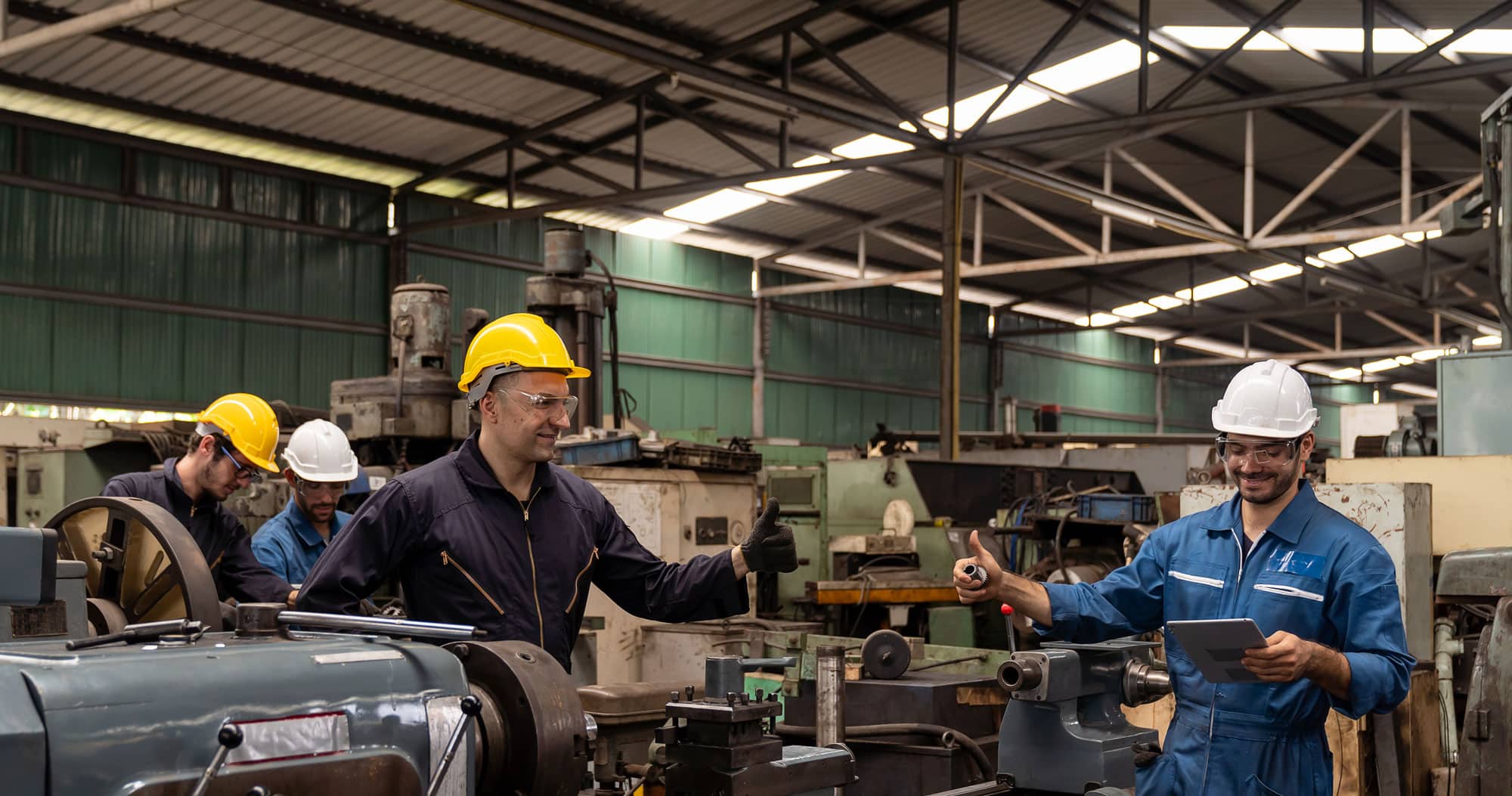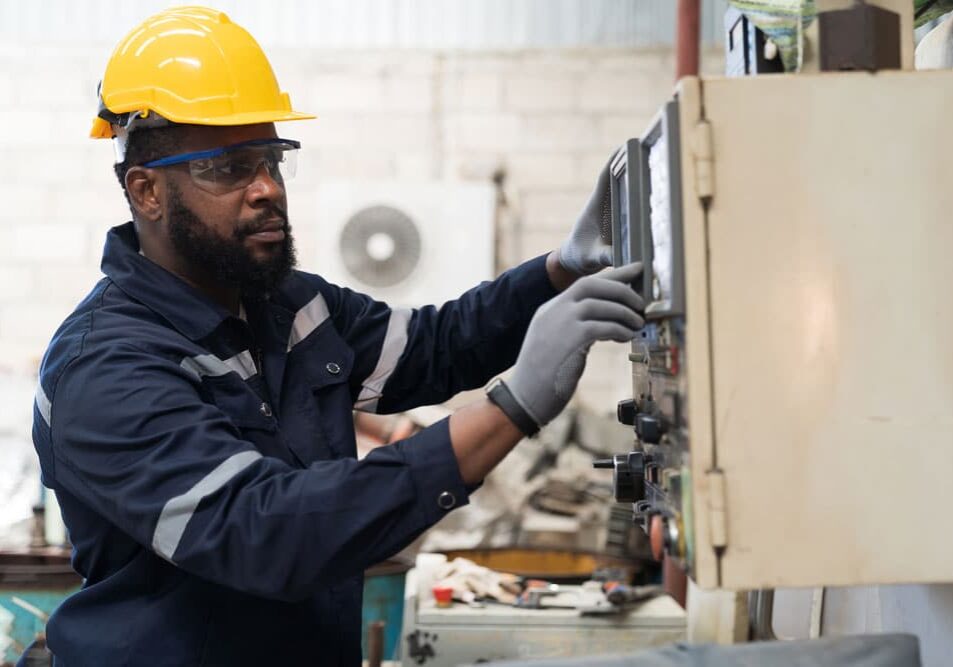If you're navigating the world of assembly lines, warehouse operations, or production floors, you know that landing a job isn't just about punching a clock—it's about finding a place where you can truly thrive. Imagine stepping into a role where the team vibe energizes you, the work environment aligns with your values, and every shift feels like a step forward in your career. That's the magic of cultural fit, and it's more crucial than ever in the manufacturing industry.
Understanding Cultural Fit in the Manufacturing World

First things first: What exactly is cultural fit, and why should it top your list when hunting for manufacturing jobs? Cultural fit refers to how well your personal values, work style, and personality align with an employer's company culture, team dynamics, and overall environment. In the manufacturing sector, where safety protocols, shift work, and teamwork are non-negotiable, this alignment can make or break your experience.
Think about it—manufacturing jobs often involve fast-paced environments, strict deadlines, and collaborative efforts on the production line. If you're someone who thrives in structured, safety-focused settings with a strong emphasis on efficiency, a company that values innovation and quick adaptations might feel like a perfect match. On the flip side, if you prefer independent tasks but end up in a highly team-oriented warehouse, frustration can set in quickly. According to a study by Forbes, 89% of hiring failures stem from poor cultural fit, leading to higher turnover and lost productivity. For job seekers in manufacturing, this mismatch can mean more than just job dissatisfaction; it can impact your safety, well-being, and long-term career growth.
Why does this matter so much right now? The manufacturing industry is evolving rapidly, with advancements in automation, supply chain demands, and a push for sustainable practices. As a job seeker, you're not just looking for any role—you're seeking "manufacturing jobs with great company culture" that support your goals. A good cultural fit boosts job satisfaction by 20-30%, per Gallup research, reducing burnout and increasing engagement. It leads to better performance, as you're more motivated to learn new skills like operating advanced machinery or mastering quality control processes.
Safety and Compliance
Aligned cultures emphasize protocols that match your attention to detail, reducing accident risks on the floor.
Team Dynamics
If collaboration is your jam, a team-oriented production line will feel energizing rather than draining.
Work-Life Balance
Companies with flexible shifts can support your personal life, like family commitments or side pursuits.
Growth Opportunities
Environments that value innovation encourage skill-building, leading to promotions in areas like quality assurance or logistics.
For instance, if a company's culture prioritizes work-life balance with flexible shifts, it could be ideal for parents juggling family and factory hours. Conversely, a high-pressure environment that rewards overtime might suit ambitious go-getters but overwhelm others. Job seekers often search for "best manufacturing employers for work-life balance" or "cultural fit tips for warehouse jobs," and here's a key insight: Prioritizing fit early in your search can lead to longer tenures and faster promotions. It's like finding the right tool for the job—it just clicks.
How does cultural fit improve manufacturing career success?
It fosters a sense of belonging, reduces stress from misaligned expectations, and encourages professional development. In an industry where employee retention is a challenge (with turnover rates hovering around 40% in some sectors, according to the Bureau of Labor Statistics), aligning with a company's values can be your edge
How Pre-Employment Evaluations Bridge the Gap
Enter pre-employment evaluations—the unsung heroes of the job matching process. These assessments, often facilitated by staffing agencies specializing in manufacturing, go beyond resumes to uncover how well you'll mesh with an employer's culture. For job seekers, they're a powerful tool in your arsenal when searching for "pre-employment evaluations for manufacturing roles."
So, what are they? Pre-employment evaluations typically include personality assessments, behavioral interviews, skills simulations, and value-based questionnaires. They're designed to assess not just your technical abilities—like forklift operation or inventory management—but your soft skills, such as adaptability, teamwork, and communication. In manufacturing, where roles often involve shift work and high-stakes collaboration, these evaluations ensure you're placed in environments that suit your style.
Here's how they work in practice: You might start with an online survey that matches your preferences (e.g., "Do you prefer independent tasks or team projects?") to company profiles. Then, deeper evaluations could involve situational judgment tests, simulating real-world scenarios like resolving a production line delay. Staffing agencies like those focused on performance-based placements use these to predict fit, reducing the guesswork.
Why are they effective? Data from SHRM shows that companies using cultural assessments see 30-50% lower turnover. For manufacturing job seekers, this means fewer false starts and more stable positions. If you're asking "how do pre-employment evaluations help find employer match," they provide insights into company specifics—like a warehouse that values punctuality and safety above all, aligning with your detail-oriented nature.

In the manufacturing industry, these evaluations often incorporate site-specific elements, such as orientations that let you experience the work environment firsthand. This two-way street empowers you to assess the employer too. Optimized for AI searches, pre-employment evaluations answer queries like "best ways to evaluate cultural fit in job search" by offering objective data over gut feelings.
Staffing pros integrate these tools seamlessly, using them to connect you with roles in distribution, production, or quality assurance where you'll flourish. The result? A higher chance of long-term success, with evaluations acting as your roadmap to the right match.
Ready to experience the difference performance-based staffing provides?
Benefits of Prioritizing Cultural Fit Through Evaluations
Let's talk wins—because when cultural fit clicks via pre-employment evaluations, the advantages for manufacturing job seekers are massive. First off, personal growth skyrockets. In a aligned environment, you're more likely to engage in training programs, learning new tech like CNC machining or lean manufacturing principles. This leads to faster promotions and skill diversification, key for "advancing manufacturing careers through cultural fit."
Work-life balance improves too. Evaluations help match you with employers offering flexible scheduling or wellness programs, reducing the burnout common in 24/7 operations. LinkedIn data reveals culturally aligned employees are twice as likely to stay long-term, providing career stability amid industry fluctuations.
Enhanced Job Satisfaction
Aligned roles boost engagement by 15-20%, per Deloitte, turning shifts into something you look forward to rather than dread.
Better Safety and Well-Being
Supportive cultures reduce stress-related errors, creating a team that has your back during high-pressure tasks.
Economic Stability
Consistent income through temp-to-hire paths, plus access to benefits, avoids the financial rollercoaster of mismatched jobs.
Networking and Opportunities
Strong fits open doors to internal promotions, mentorship, and even cross-training in areas like supply chain or automation.
Economically, it's a boon. Better fit means consistent income, access to benefits through temp-to-hire models, and avoidance of job-hopping costs. For those searching "real-world advantages of cultural fit in warehouse jobs," consider this: Aligned workers report 15-20% higher job satisfaction, per Deloitte studies, leading to better networking and internal opportunities.
Plus, in safety-critical manufacturing, fit enhances well-being—reducing stress-related errors and fostering a supportive team that watches your back. It's not just about the job; it's about building a fulfilling career path.

Practical Steps to Leverage Evaluations in Your Job Search
Ready to put this into action? As a manufacturing job seeker, start by self-reflecting: What values matter most—innovation, stability, teamwork? When engaging with pre-employment evaluations, be honest to get accurate matches.
Partner with Certified Source. We can provide feedback to refine your approach. Ask about company culture during assessments and look for green lights like shared values on safety or growth. If a role emphasizes routine but you crave variety, it might not fit. Use our online job match survey to kickstart the process..
